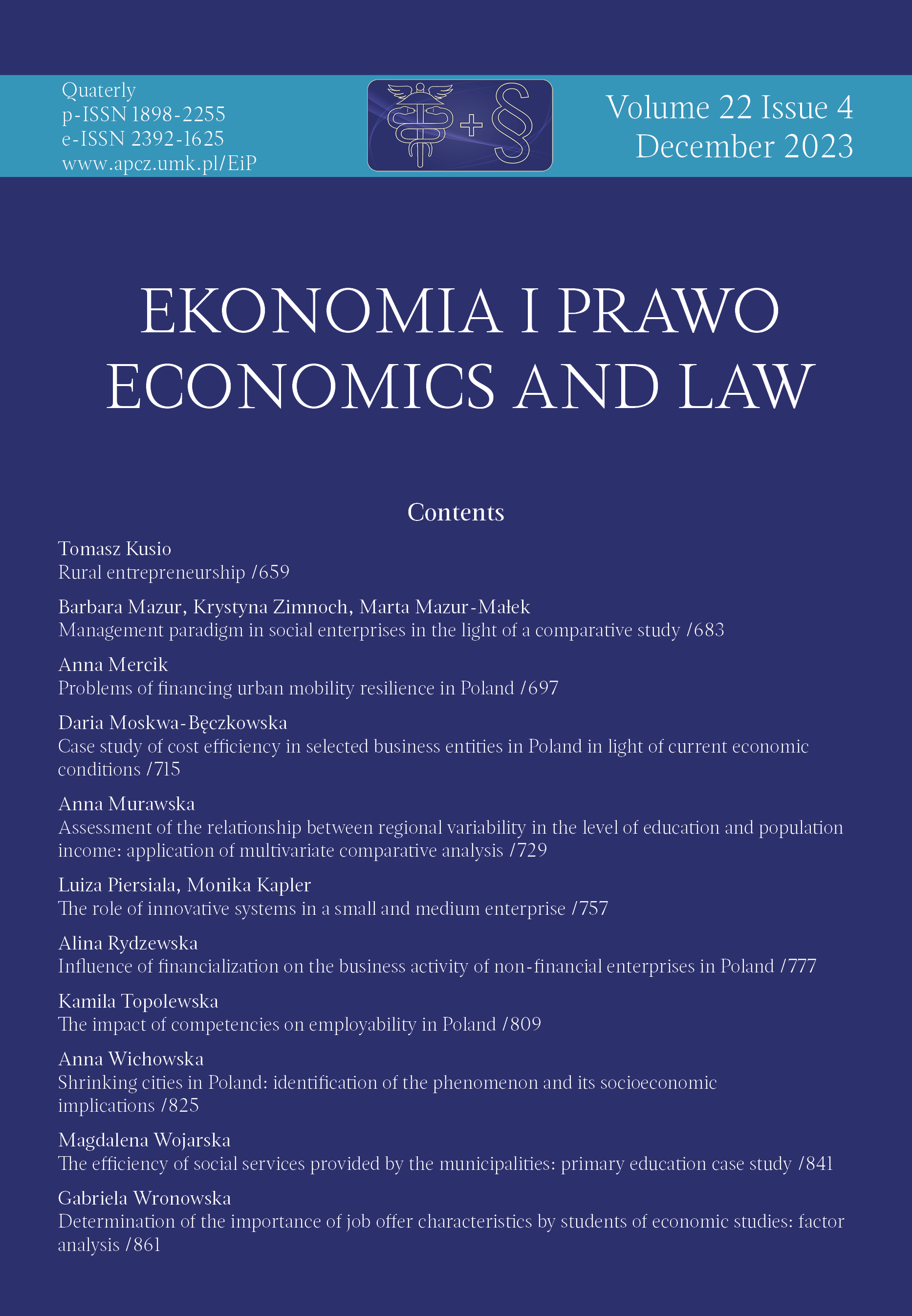The efficiency of social services provided
by the municipalities: primary education
case study
The efficiency of social services provided
by the municipalities: primary education
case study
Author(s): Magdalena WojarskaSubject(s): Welfare systems, School education, State/Government and Education, Rural and urban sociology, Welfare services
Published by: Wydawnictwo Naukowe Uniwersytetu Mikołaja Kopernika
Keywords: municipal expenditures; primary education; efficiency; DEA; Malmquist index;
Summary/Abstract: Motivation: The crucial value guiding local governments is to serve their residents by carrying out public tasks that satisfy the collective needs of the local community. Although the municipality, as a non-profit organisation, does not have to be profitable, it must apply proper management practices to achieve its goals and attract investors. Local government’s efficient and effective functioning is now the basis of modern society. Measuring and analysing results have become an international trend in modernising public administration, and results-based management is seen as a manifestation of public concern for the proper use of taxes. Education is a significant area of local government activity due to its role in every country’s development and the fact that it absorbs considerable financial resources. The growing economic crisis and challenges local governments face today mean that efficiency analysis should also be conducted concerning this category of tasks.Aim: The article aims to assess the efficiency of resources (financial and human) used by municipalities to carry out their task in the field of primary education in the context of the type and wealth of the commune.Results: The results of this study confirm higher resource efficiency in cities than in rural municipalities. The percentage of cities where the total efficiency coefficient exceeded the level of the third quartile was 84.6% (including 97.3% in large units, 91.9% in medium ones, and 70.8% in small ones). At the same time, it was only 14.9% in rural communes. Medium-sized cities with high levels of own revenue per capita characterised the highest efficiency of converting input into output. In contrast, rural municipalities with low levels of own revenue had the lowest efficiency.
Journal: Ekonomia i Prawo. Economics and Law
- Issue Year: 22/2023
- Issue No: 4
- Page Range: 841-859
- Page Count: 19
- Language: English

